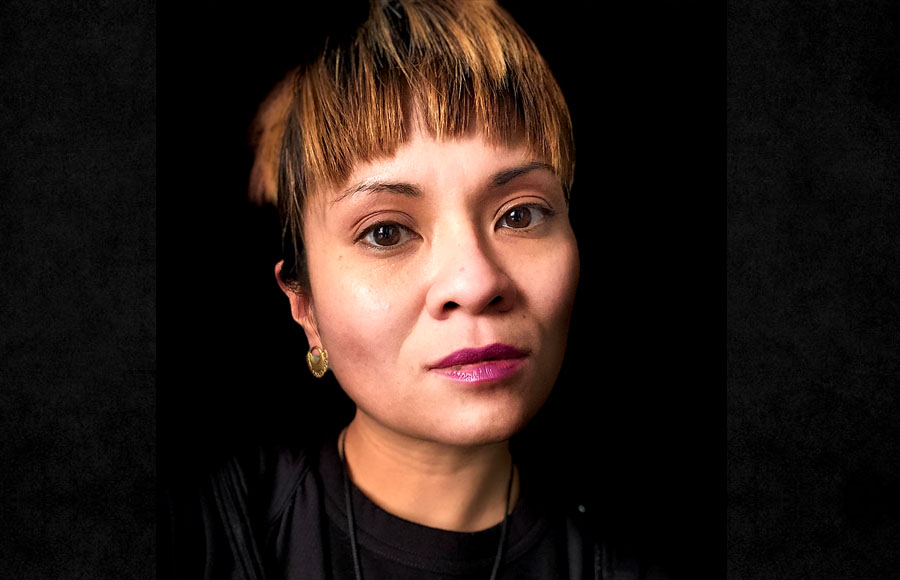BOONE, N.C. — Dr. Christina Verano Sornito-Carter, assistant professor in Appalachian State University’s Department of Anthropology, has been awarded a 2019–20 research grant through the Fulbright Scholar Program for her project “Against Decaying Futures: Heritage Conservation and Disaster Management on a Visayan Island.”
She will travel to the Philippines in August 2020 to perform her research at the University of the Philippines Visayas in the city of Iloilo, which is located in the central Philippines.
The Fulbright Program, established in 1946 under legislation introduced by former U.S. Sen. J. William Fulbright, is sponsored by the U.S. Department of State’s Bureau of Educational and Cultural Affairs (ECA). The program provides participants — chosen for their academic merit as well as leadership potential — the opportunity to study, teach and conduct research, exchange ideas, and contribute to finding solutions to shared international concerns. To date, approximately 370,000 “Fulbrighters” have participated in the program since its inception.
Building on previous work drawing from oral histories of haunted landscapes in the postcolonial archipelago, Sornito-Carter’s forthcoming Fulbright research will add to the story about island dwelling by charting the heritage conservation and disaster management movements in the 21st-century Philippines.
During her time in the field, Sornito-Carter will be working on the ground with disaster management teams who often lead dual lives as heritage conservation officials, she said.
“Heritage preservation has been complicated and compounded by recent and rapid changes of climate conditions in the early 21st century. Thus, cultural heritage workers are not only trying to figure out how to save the ‘past,’ but in a time where climate change is severely impacting Pacific communities, as disaster management officials, must also work on how to create the conditions to survive and preserve habitable futures,” she added.
While pursuing archival research plus ethnographic fieldwork, she hopes to begin production on a film about people, archipelagic landscapes and folklore in a moment of rapid climate change.
“The effects of climate change in the Pacific are not a future scenario but an immediate and concrete reality,” Sornito-Carter said, “and to understand how archipelagic countries are facing the future, it is important to understand how the past is also being imagined.”
After the devastation wrought by Typhoon Frank in 2008 and Typhoon Haiyan (Yolanda) in 2013, climate change and its potential impacts on island countries have forced the Philippine government to move quickly, Sornito-Carter explained.
In 2009, Republic Act No. 10086 inaugurated the heritage conservation movement in the Philippine archipelago, followed by Republic Act No. 10121, the Philippine Disaster and Reduction Management Act.
“The simultaneous passage of these congressional acts highlights the intersection of heritage conservation and disaster management in a tropical country such as the Philippines, and the underlying anxieties around ‘culture loss’ and identity that shape these concerns at different scales — from the metropole to the rural village,” she said.
According to Sornito-Carter, the question of what it means to be Filipino now rests on, among other things, apprehension over losses incurred when an old house rots or is demolished to make way for a mall or road. “It also includes increasing tension over mass death and destruction suffered in the wake of Typhoon Haiyan, one of the most powerful super typhoons in recorded history,” she shared.
“Decay is perceived as a specter that must be prevented and protected against. In a young republic like the Philippines, heritage conservation seeks to establish official recognition of Filipino cultural forms. It follows that the absence of recognition then would result in the erasure, decay or destruction of heritage,” Sornito-Carter said. “Similarly, disaster management is a set of protocols that seek to protect against and cope with erasure, death, decay and destruction on multiple registers.”
Sornito-Carter is an anthropologist broadly trained in cultural anthropology with a focus on media theory, religion and Southeast Asia. She holds a Ph.D. and an M.A. in anthropology from Columbia University, as well as a B.A. in anthropology and interpretation theory from Swarthmore College.
Her dissertation, “Haunted Legacies: Healing and Sorcery in a Visayan Community,” examines the convergence of global capitalism, colonial history and the indigenous spirit world in the central Philippines.
At Appalachian, she teaches courses on the anthropology of media and experimental ethnography.
Her research addresses the main themes of the apocalypse, shamanism (broadly known in the Philippines as babaylanism) and haunted landscapes of modernity and postcolonial legacies.
Her research interests include the following:
- Visual anthropology.
- Ethnographic film.
- Video/audio documentary.
- Voice theory and anthropology of sound.
- Healing and sorcery.
- Magic and religion.
- Anthropology of nature and the Anthropocene (the current geological age).
- Indigenous studies.
- Nationalism.
- Transnational labor.
- Psychoanalysis.
- Central European avant-gardes.
- The Philippines and Southeast Asia.
What do you think?
Share your feedback on this story.
About the Department of Anthropology
The Department of Anthropology offers a comparative and holistic approach to the study of the human experience. The anthropological perspective provides a broad understanding of the origins as well as the meaning of physical and cultural diversity in the world — past, present and future. Learn more at https://anthro.appstate.edu.
About the College of Arts and Sciences
The College of Arts and Sciences (CAS) at Appalachian State University is home to 17 academic departments, two centers and one residential college. These units span the humanities and the social, mathematical and natural sciences. CAS aims to develop a distinctive identity built upon our university's strengths, traditions and locations. The college’s values lie not only in service to the university and local community, but through inspiring, training, educating and sustaining the development of its students as global citizens. More than 6,800 student majors are enrolled in the college. As the college is also largely responsible for implementing App State’s general education curriculum, it is heavily involved in the education of all students at the university, including those pursuing majors in other colleges. Learn more at https://cas.appstate.edu.
About Appalachian State University
As a premier public institution, Appalachian State University prepares students to lead purposeful lives. App State is one of 17 campuses in the University of North Carolina System, with a national reputation for innovative teaching and opening access to a high-quality, cost-effective education. The university enrolls more than 21,000 students, has a low student-to-faculty ratio and offers more than 150 undergraduate and 80 graduate majors at its Boone and Hickory campuses and through App State Online. Learn more at https://www.appstate.edu.






![How NCInnovation Is Rethinking Economic Development in North Carolina [faculty featured]](/_images/_posts/2026/02/rethinking-economic-development-600x400.jpg)







